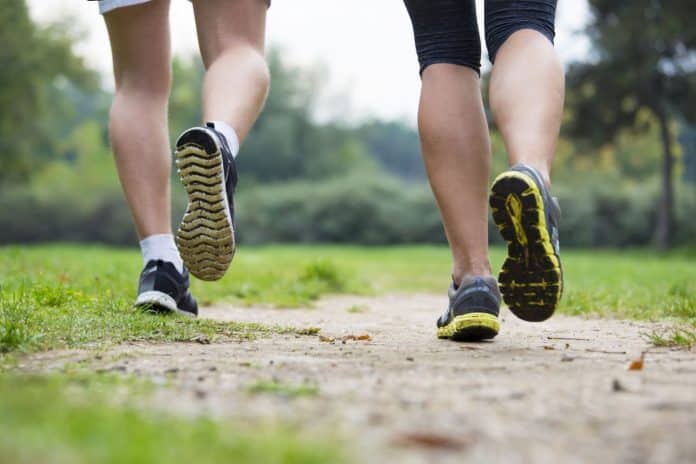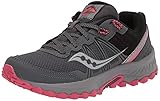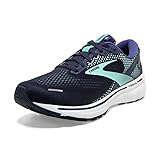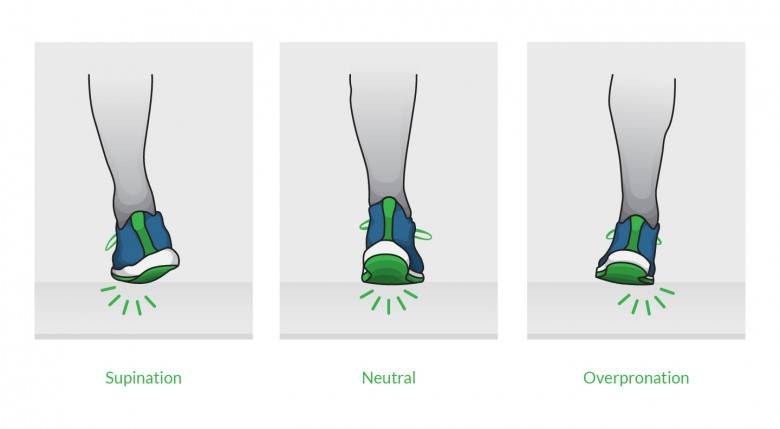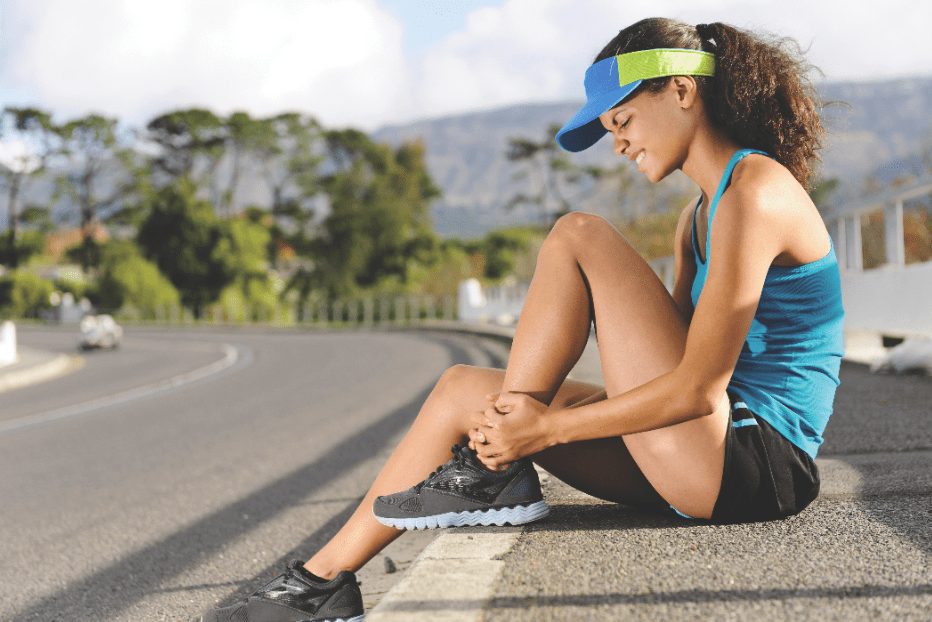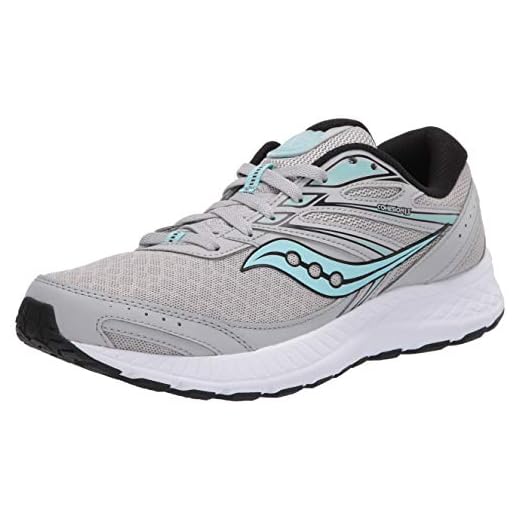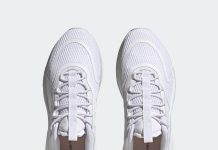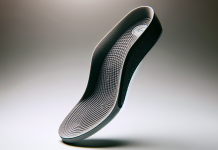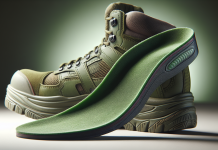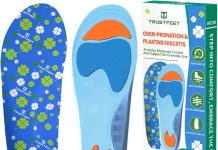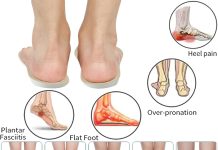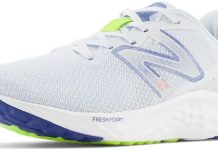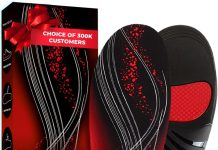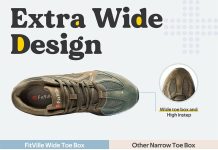Are you a runner dealing with supination or underpronation?
Choosing the right pair of running shoes is crucial to prevent injuries and optimize your performance.
In this comprehensive guide, we will delve into the critical aspects of supination, provide tips on identifying the best shoes, consider factors in selecting running shoes for supination, explore top brands and models, and offer effective treatment and prevention tips. So, let’s lace up and get started!
Supination – during normal gait immediately before ‘take-off’ from the toes, the ankle tends to angle outwards, and the foot is supported briefly on its outer side.
Over-supination can cause the ankle to roll towards the outer side, with possible ligament damage.
Top 15 Best Shoes for Supination Reviews 2024
Furthermore, people with one-foot conditions, pronation, or supination need to look for footwear with extra support and cushioning to prevent additional leg stress, injuries, and pain and discomfort connected with foot problems.
Underpronation or excessive supination is a problem that occurs when the foot leans towards the outside, and weight is distributed on the outside of your foot, which reduces natural shock-absorbing capability.
Pronation
Pronation combines eversion and abduction movements in the tarsal and metatarsal joints, lowering the foot’s medial margin, hence the longitudinal arch.
In other words, the lowering of the medial edge of the foot by turning it outward and through abduction in the tarsal and metatarsal joints.
That is a sequence during normal gait after the heel hits the ground; the ankle tends to angle inwards, the foot is supported briefly on its inner side, and the arch tends to flatten while weight is transferred progressively towards the toes.
Supination is connected with the forefoot area, and pronation affects and connects with the heels. Pronation affects ankles and calves, while supination causes damage mainly on the arches.
Supinate hits people with high arches, while people with flat feet and lower arches tend to get overpronate. Both conditions, supination and pronation, need balance to get the body in a natural posture and live without pain.
Cause of supination and excessive supination
Supination usually involves inherited structural problems that cause it. But a list of factors also plays a role in this condition, like genetics, leg length, foot width, and ankle stability. The shape of the foot is the genetic moment that can increase the risk of supination.
Previous injuries and damages can cause supination and trauma your leg has been through.
Problems can be connected with the muscles, tendons, and ligaments being overworked or damaged after the effect or sprained ankle.
Excessive supination can be something you are carrying from your childhood. It can also result from earlier injury or overworked muscles, ligaments, and tendons connected with an ankle.
Supination and overpronation long-term effects
Both conditions can cause a few problems connected with muscle-skeletal pain and dysfunctions, such as foot and arch pain; plantar fasciitis; Achilles tendonitis; tight and painful calves; rolled or sprained ankles; shin splints; specific knee problems and knee pain; tight hip flexors and hamstrings; tight and sore hips or buttocks; acute or chronic lower back pain and herniated discs.
What is Supination and Underpronation?
Understanding the Basics of Supination
Supination refers to the outward rolling motion of the foot during the walking or running gait cycle. It results in an uneven weight distribution on the foot, putting excessive stress on the outer edge and causing potential ankle and lower leg issues.
Signs and Symptoms of Underpronation
Underpronation, also known as supination, can lead to symptoms such as foot pain, ankle instability, and an increased risk of developing conditions like plantar fasciitis and Achilles tendonitis. It’s essential to recognize these signs to address them effectively.
Importance of Choosing the Right Running Shoes
Selecting the best running shoes for supination plays a significant role in providing the necessary support and cushioning to counteract the effects of underpronation, promoting a more natural and balanced stride.
How to Identify the Best Shoes for Supination?
Key Features to Look for in Shoes for Supination
When searching for shoes for supination, focus on features such as proper arch support, cushioning, and a wide toe box to accommodate the foot’s natural movement. Additionally, look for midsole technology designed to effectively absorb and dissipate impact forces.
Signs Your Shoes Are Not Suited for Supination
Suppose you experience discomfort or pain on the outer edge of your foot or notice rapid wear on the outer part of the outsole. In that case, it may indicate that your current shoes are not adequately addressing your underpronation needs.
Consulting a Podiatrist for Shoe Recommendations
For personalized guidance, consulting a podiatrist can be highly beneficial, as they can assess your gait and foot structure to recommend the most suitable footwear for your specific supination requirements.
What to Consider When Selecting Running Shoes for Supination?
Importance of Proper Cushioning and Arch Support
Proper cushioning is essential in running shoes to absorb shock and reduce the impact on the feet and legs. Likewise, adequate arch support helps distribute pressure evenly and maintain proper foot alignment during each stride.
Impact of Heel and Toe Box on Supination
The design of the heel and toe box is critical for supinators. A well-cushioned heel can provide stability and support, while a wide toe box allows for a natural toe splay, accommodating the broader shape of the forefoot.
Finding the Right Fit for Wide Feet and Underpronation
Individuals with wide feet and underpronation need to find running shoes that offer ample room in the toe box and a secure fit around the midfoot and heel, ensuring overall comfort and stability during the running motion.
How to determine supination
There are a few simple steps to determine if you have a supination. Examine a pair of your old walking or running shoes.
Find the wear pattern on the outsoles of your shoes.
Look for excessive wear on the outside edge of the outsole. If this exists, you have overpronation. This foot pattern is more common than the pattern for too much supination. Choose a new pair of shoes that have a straight leg.
Moreover, seek excessive wear on the outside edge of your outsole after you rule out overpronation.
If this exists, you have a supinator or underpronation pattern.
Purchase shoes with extra cushioning and a curved last if you have a supination pattern.
Choose shoes for a regular pronation pattern if you have a wear pattern from the outside edge of your outsole’s heel toward the outsole’s center at the forefoot.
Most people have this type of foot pattern, according to NDSU. Your shoes should have a semi-curved last.
Excessive supination effects
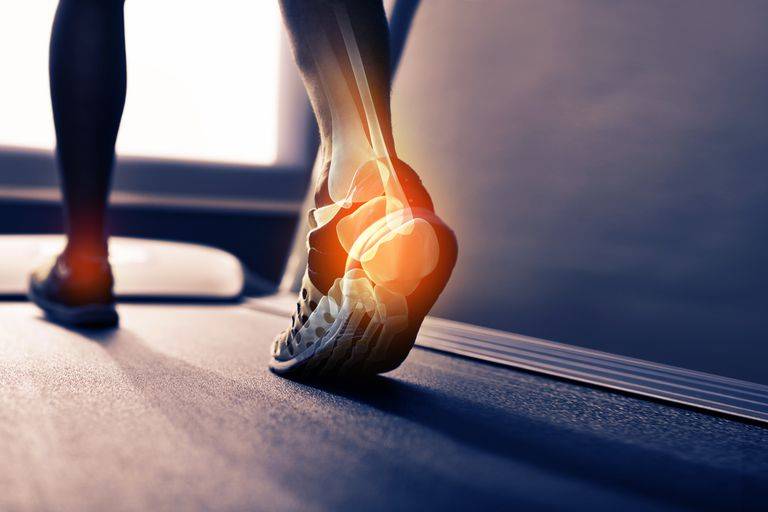
If you have supination, your body will become more sensitive to injuries because of reduced shock absorption and biomechanical body efficiency, making your push-off less effective.
The whole body is affected because of those conditions. Extra pressure on your muscles and joints makes complete body alignment suffer.
Also, there is a much higher risk of ankle sprain because they are under constant strain, which is more than normal pressure on the legs.
Many problems, like knee problems, ligament damage, stress fractures, shin splints, back pain, and increased metatarsal pronation, can happen.
How to choose shoes for supination
Cushioning is one of the most significant factors; high and concave arches need an extra layer of cushioning and a cushioned midsole that will give your leg maximum support.
A straighter instep shape controls inward motion, especially if you get personalized orthotics and insoles.
Adding lateral heel wedges will stabilize your heel and keep your foot from rolling in and out.
Wearing the correct shoes for your feet problem helps reduce pain, risk of injuries, and damage to the other parts of your body. It also positively affects your body balance and posture.
Excessive supination – features of a suitable footwear
- extra layers of cushioning
- shock absorption capabilities
- arch support
Choose shoes without a motion control system, medial support posts, rigid midsoles, and other stabilizing systems and features.
Running shoes for supination
New Balance M1080v8 for men and women runs shoes with support features and comfort layers to make perfect shoes for supination.
Those shoes can be worn for casual everyday walks but also for running.
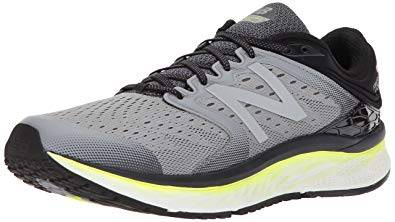
New Balance M1080v8 is manufactured from high-quality, breathable fabric materials in an ombre fade design and lace keeper overlay. Also, the Fresh foam midsole adds comfort and support to the shoes.
The Bootie model is combined with mesh and adds an orthopedic sock liner.
The midsole and outsole are in data-driven design.
Underpronation shoes – lace-up walking shoes
New Balance MW813 walking shoes for men and women are motion-control shoes designed with new technologies.
The materials used are high quality and give those shoes extra support, stability, and comfort.
These shoes can be worn for casual everyday walks, and by design, they will fit every style.
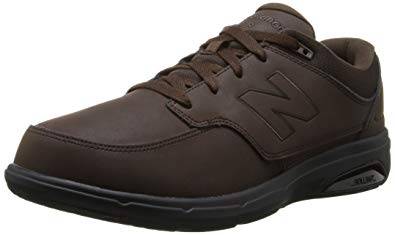
The material that is used is quality, durable, and soft leather. ROLLBAR and Medial Lateral TPU posts give your feet the most significant motion control while walking.
Strike path technology helps naturalize the gait cycle as much as possible and stabilizes your steps.
Snug fit because of a soft collar and many designs to choose from.
Under pronation sandals from Orthaheel technology
Vionic Neil for men and Vionic Shore sandals for women from Orthaheel technology are supportive, stable, and comfortable sandals for people suffering from excessive supination.
Podiatrists have designed these sandals to provide relief and comfort while walking and spending days in the sun.
The whole sandal sole is completely orthotic and has added arch support in the company with a more bottomless heel cup for extra comfort.

The outer part of the sandal is made of durable rubber, and the EVA triple-density midsole has an extra layer of cushioning to absorb shock from different terrains.
Orthaheel technology improves alignment and offers natural pain relief.
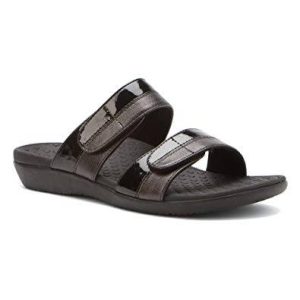
Stability running shoes for underpronation
New Balance M1260v7 for men and New Balance W1260v7 for women are light and breathable stable running shoes designed especially for runners who suffer from supination.
Shoes are modern, casual, light, and breathable for all-day wear while walking and running.
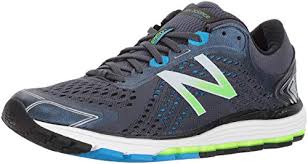
Shoes are made of mesh and breathable synthetic. No-sew technology of application ensures minor irritation and prevents chafing.
Fantom fit upper giver support and improves fit. The rubber outsole delivers good grip and traction that is permanent.
Fuel Cell shock-absorbing technology and Absorb design midsole.
Running shoes for supination condition
Asics Gel Nimbus, 20 for men and women, has ample cushioning and Fluid Fit flexible technology for supine runners.
Fluid fit uppers have a stretchy multi-directional mesh with stretch reinforcements, creating an adaptive fit to the foot. It suits like a glove, we would say.
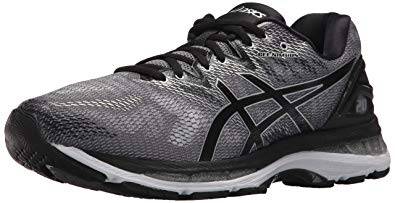
The heel counter has a clutching system that provides firm support and the best-fitting heel environment.
Asics Gel Nimbus has a seamless construction that prevents irritation and friction caused by shoe stitches and seams.
Fluid Ride midsole absorbs shock and has memory cushioning that bounces back with reduced weight.
Rubber outsoles are durable and have excellent grip. Shoes come in a few different color designs.
Flip flops for extra support and enhance supination
Orthaheel vionic tide for men and women flip flops are great news for people with supination problems.
Summer footwear is a common problem because it slips, does not have a sole, etc.
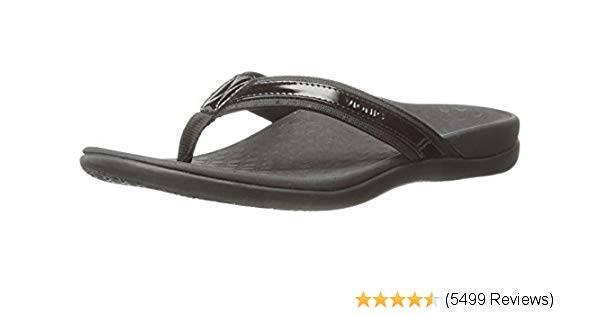
These flip-flops come from the Orthaheel technology. They reduce supination, provide pain relief, and natural healing for aches and pain linked to poor lower limb alignment.
Vionic Tide flip-flops are supportive and comfortable.
Tri-planar technology with biomechanical features controls their motion.
The heel cup is deep and helps the feet to align in a natural position on every terrain.
Flip-flops are made of breathable materials. They are easy to clean and fast drying. The Upper webbing is comfortable.
Podiatrist recommended shoes for supination
Read Next – Top 10 Best Running Shoes for Supinators
Skechers Sport Women's D'Lites Memory Foam Lace-up Sneaker,Navy/Grey/White,9.5 M US
$44.97 in stock
Skechers Men's Energy Afterburn Lace-Up Sneaker,White/Navy,13 XW US
2 used from $46.24
Brooks Women's Adrenaline GTS 22 Supportive Running Shoe - Pearl/Black/Metallic - 10.5 Medium
Saucony Women's Excursion TR14 Trail Running Shoe, Charcoal/Coral, 6.5
ASICS Women's Gel-Contend 6 Running Shoes, 7, Sheet Rock/Diva Pink
ASICS Women's Gel-Excite 7 Running Shoes, 10, Carrier Grey/White
OrthoComfoot Womens Arch Support Slip On Shoes, Comfortable Shoes for Plantar Fasciitis, Metatarsalgia Supination, Lady's Orthopedic Fashion Sneakers for Walking Light Brown Size 10
Brooks Ghost 14 Women's Neutral Running Shoe - Peacoat/Yucca/Navy - 7.5
Brooks Ghost 14 Sneakers for Men Offers Soft Fabric Lining, Plush Tongue and Collar, and L Lace-Up Closure Shoes Black/Black/Ebony 10 D - Medium
Saucony Women's Cohesion 14 Road Running Shoe, Powder/Ceramic, 8.5
$59.95 in stock
Read Next – How to Choose Running Shoes
What are the best running shoes for supination?
The best running shoes for supination are neutral shoes with plenty of cushioning to help absorb shock and protect the outer edge of the foot. Look for shoes with a wide toe box, good support for the midfoot, and a good forefoot area. Some popular shoe brands for supination or underpronation are Nike, Hoka, Saucony, and Adidas.
How do I know if I supinate?
If your foot rolls outward when you run, you may have supination or underpronation. You can check the sole of your shoe for signs of wear to confirm this. It’s always best to consult with a podiatrist if you are experiencing any foot pain or discomfort.
What are the effects of supination?
Supination can cause foot and ankle pain and increase the risk of injuries such as ankle sprains and stress fractures. It can also affect your stride and lead to overuse injuries such as Achilles tendonitis.
Can wearing the right running shoes help with supination?
Wearing the right running shoes can help with supination. Look for shoes with good cushioning and support for the midfoot and forefoot. It’s also important to find shoes with a wide toe box for underpronation. A podiatrist can help you determine the shoe best for your foot type and running style.
What features should I look for in running shoes for supination?
When looking for running shoes for supination, you should look for shoes with a wide toe box, good cushioning, and support for the midfoot and forefoot. Neutral shoes are preferable to stability shoes for supinators. Hoka and Nike are two brands that make great shoes for supination.
Can having wide feet affect my supination?
Yes, having wide feet can sometimes make supination worse. Wear shoes with a wide toe box to allow your toes to splay out and provide adequate room for your foot to move naturally. Shoes with a narrow toe box can exacerbate supination.
What is a wide-toe box?
A: A wide toe box is a shoe feature that provides extra wiggle room for your toes. This feature benefits people with wide feet and those who supinate or underpronate. A wide toe box allows your toes to splay out and move naturally, improving your running form and reducing the risk of a foot injury.
Are there specific brands or models of shoes that are good for supination?
A: Yes, some popular shoe brands for supination or underpronation are Nike, Hoka, Saucony, and Adidas. Specific models within these brands that are good for supination include the Hoka One One Clifton, Nike Air Zoom Pegasus, and Saucony Ride.
What is the best cushioning for shoes for supination?
Shoes for supination or underpronation should have plenty of cushioning to help absorb shock and protect the outer edge of the foot. Look for shoes with foam or gel cushioning systems, such as Nike Air Zoom and Hoka One One’s Meta-Rocker technology.
What is the difference between underpronation and supination?
Underpronation, also known as supination, is when the foot rolls outward when running or walking, causing the weight to be distributed on the outer edge of the foot.
Conversely, overpronation is when the foot rolls inward, causing the weight to be distributed on the inner edge of the foot. Both conditions can cause foot pain and increase the risk of injuries, so wearing the right shoes for your foot type is essential.
What is foot supination?
Foot supination is a foot movement where the weight is shifted to the outside edge of your foot. It is also known as underpronation.
What are shoes for supination?
Shoes for supination or underpronation are designed to provide stability and cushioning to the outer edge of the foot. These shoes help to correct foot movement and prevent injuries.
Why is it important to wear shoes for supination?
Wearing the right running shoes for supination is essential to prevent injuries such as ankle sprains, plantar fasciitis, and stress fractures. These shoes also help to improve running technique and performance.
How can I tell if I have supinating feet?
A: You can tell if you have supinating feet by examining the wear pattern on your shoes. If there is more wear on the outer edge of the sole, you likely have supinating feet.
Q: What are some of the best shoes for supination?
Some top shoes for supination include the Nike Air Zoom Pegasus, Hoka One One, Saucony, and Brooks Glycerin.
Can shoes worsen supination?
Wearing the wrong type of shoes can worsen supination and increase the risk of injuries. Choosing shoes that provide proper support, cushioning, and stability for supinating feet is essential.
Do I need to see a podiatrist for foot supination?
Seeing a podiatrist is good if you experience pain or discomfort when running. They can evaluate your feet and recommend the best shoes and treatment.
Can dress shoes be made for supination?
Yes, there are dress shoes that are made for supination. Look for shoes with cushioned soles and good arch support.
Is foot supination the same as overpronation?
A: No, foot supination is the opposite of overpronation. Overpronation is when the foot rolls inward, while supination is when the foot rolls outward.
Can a specific running technique help with foot supination?
Adopting a midfoot or forefoot strike instead of a heel-to-toe strike can help reduce the risk of injuries and improve running technique for supinating feet.
Top Brands and Models for Supination and Underpronation
The Best Running Shoes for Supination in 2024
In 2024, numerous top-quality running shoes cater to supinators, offering advanced features and technologies to address underpronation effectively. These include models from renowned brands like Nike, Hoka, Saucony, Adidas, Asics, New Balance, and Brooks.
Notable Features of Nike, Hoka, and Saucony Shoes
Nike, Hoka, and Saucony are well-known for their commitment to innovation and performance. Their shoes for supination boast advanced cushioning, breathable uppers, and durable outsoles, ensuring optimal support and comfort for runners dealing with underpronation.
Comparing the Top Models for Supinators
When comparing the top models for supinators, factors such as cushioning technologies, stability features, and overall fit should be carefully evaluated to determine the most suitable option based on individual preferences and specific biomechanical needs.
Tips for Effective Supination Treatment and Prevention
Preventing Injuries with Proper Footwear and Gait Analysis
Prevention is vital when it comes to supination-related injuries. Along with wearing the proper footwear, getting a professional gait analysis can provide valuable insights into your running mechanics, helping identify potential issues and areas for improvement.
Dealing with Plantar Fasciitis and Other Foot Conditions
Supinators are susceptible to conditions like plantar fasciitis. It’s essential to promptly address any discomfort or pain, seek appropriate treatments, and incorporate supportive measures such as orthotic inserts or targeted stretching exercises into your routine.
Importance of Choosing the Right Running Style for Supinators
Adopting a proper running style can significantly impact supination. Ensuring a balanced and efficient stride, striking the ground with the midfoot, and maintaining proper posture can reduce the strain on the foot and ankle, promoting a more comfortable and injury-free running experience.

